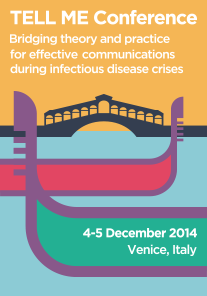Doc2Doc
Re: Best way to find the most important/landmark papers in medicine?
Precision Search is a new, Medline tool that makes it easy for you to find the information you need in just 2-3 steps. It is a simple-to-use search tool to unlock the powerful information that’s inside the Medline® database. Plus, you can get started right away with a free 30-day trial. Simply use the code "dctrial" at medlineprecisionsearch.com.
Also, MedInfoNow is both an update and instant-answer tool based on Medline. It's the only update service that combines Medline updates with comprehensive news and reviews of print and electronic books in the health sciences from Doody’s Review Service™. However, to get the full articles, you will need a subscription. Or if you are a part of a society, they may have a license and can provide you with a subscription.
I hope one of these can be of some help!
Re: Social media communication during epidemics
Re: Social media communication during epidemics
We have had a good result in the past using the social media as an effective way to mass communication.
Psychologically people tend to follow mass or large scale media instructions.
It is beyond any doubts that the social media be involved in mass communication programs.
Also the social media, with help of the advanced communication methods can be able to achieve a good co-ordination between all the healthcare personalities.& help to share views of each other.
The limitations may sometimes be concerned with lack of technically detailed knowledge.
Re: Social media communication during epidemics
Social media is all about communication. I think only bloggers who are medical specialist and have high reputation can be source of such information.
Social media communication during epidemics
We will be assessing the way social media has been used in the past by health authorities, doctors, nurses and patients, to spread messages during epidemics.
Notably, we are interested in social media’s role to spread reliable information to at-risk groups, but also its potential to spread misinformation. We want to explore the following areas:
- How has social media been used in previous epidemics to reach at-risk groups/spread health messages? (How have health authorities and doctors used it? What have patients used it for?)
- What’s the psychology behind social media? Does it compel users to help each other?
- Recommendations on how social media be used to spread relevant information more effectively
- How can social media be used to get different health professionals (doctors, nurses, etc) to communicate with each other and share infromation/advise patients?
- What are its limitations?
We will be posting on the next few months to gauge opinion and will be working with @nhssm who conduct a few Twitter chats, a blog, and scenario exercise, to explore the answers to some of these questions and find out how social media could be used by health professionals in the future to improve communication and disemminate reliable information.
Poll Question: Should doctors use social media to disseminate public health information?
17 Votes - Yes
7 Votes - No
4 Votes - Don't know
Should doctors use social media to disseminate public health information?
Re: Social media communication during epidemics
Furthermore, I think social media has so much risk of being abused that it is risky that information placed on social media couldn't likewise be abused.
Hence what I think social media should be used for is promotion.
Best way to find the most important/landmark papers in medicine?
Someone sent me http://signup.trendmd.com/ but it doesn't allow me access. Anyone used it?
Re: Should we think more creatively about the uses of social media in healthcare?
Re: Should we think more creatively about the uses of social media in healthcare?
Re: Should we think more creatively about the uses of social media in healthcare?
It also also applies to good content in media where the rest is titillating rubbish.
While Twitter et al might be useful for public health, it would be as much use as an article on venereal disease in the News of the World.
JOhn
Best way to find the most important/landmark papers in medicine?
Someone sent me http://signup.trendmd.com/ but it doesn't allow me access. Anyone used it?
Should we think more creatively about the uses of social media in healthcare?
http://www.gponline.com/News/article/1128299/gmc-consults-guidance-gps-using-facebook-twitter/
For me, whilst it is important to provide guidelines, I am concered that all discussion of the potential uses of social media in healthcare are being bogged down by issues to do with professionalism, reputation, confidentiality etc. Whilst I full acknowledge these are important issues, there seems to be s a lack of balance.
There is a small but committed band of healthcare professionals dedicated to exploring the uses of social media in healthcare, but for me the majority of what I see discussed about doctors and social media seems to be dominated by largely bureaucratic or technical issues.
Should there be more creative thinking in how we can use social media in healthcare? (E.g. public health engagement, disemmination of information for patients etc?) 'Social' media implies that it is a social tool, and perhaps doctors want to use it purely for social use, but seeing that how many people use Twitter as a news source, surely the health profession should harness it more widely?
Should we think more creatively about the uses of social media in healthcare?
http://www.gponline.com/News/article/1128299/gmc-consults-guidance-gps-using-facebook-twitter/
For me, whilst it is important to provide guidelines, I am concered that all discussion of the potential uses of social media in healthcare are being bogged down by issues to do with professionalism, reputation, confidentiality etc. Whilst I full acknowledge these are important issues, there seems to be s a lack of balance.
There is a small but committed band of healthcare professionals dedicated to exploring the uses of social media in healthcare, but for me the majority of what I see discussed about doctors and social media seems to be dominated by largely bureaucratic or technical issues.
Should there be more creative thinking in how we can use social media in healthcare? (E.g. public health engagement, disemmination of information for patients etc?) 'Social' media implies that it is a social tool, and perhaps doctors want to use it purely for social use, but seeing that how many people use Twitter as a news source, surely the health profession should harness it more widely?
Social media communication during epidemics
We will be assessing the way social media has been used in the past by health authorities, doctors, nurses and patients, to spread messages during epidemics.
Notably, we are interested in social media’s role to spread reliable information to at-risk groups, but also its potential to spread misinformation. We want to explore the following areas:
- How has social media been used in previous epidemics to reach at-risk groups/spread health messages? (How have health authorities and doctors used it? What have patients used it for?)
- What’s the psychology behind social media? Does it compel users to help each other?
- Recommendations on how social media be used to spread relevant information more effectively
- How can social media be used to get different health professionals (doctors, nurses, etc) to communicate with each other and share infromation/advise patients?
- What are its limitations?
We will be posting on the next few months to gauge opinion and will be working with @nhssm who conduct a few Twitter chats, a blog, and scenario exercise, to explore the answers to some of these questions and find out how social media could be used by health professionals in the future to improve communication and disemminate reliable information.
Introducing.... TELL ME
BMJ Group and doc2doc are involved in a European Commission project called TELL ME, which is looking into communication techniques used during public health crises.
TELL ME stands for Transparent communication in Epidemics: Learning Lessons from experience, delivering effective Messages, providing Evidence) and is a 36 month Collaborative Project, which aims to provide evidence and to develop models for improved risk communication during infectious disease crises. TELL ME combines public health, social sciences, behavioural sciences, political sciences, law, ethics, communication and media, in order to develop original communication strategies regarding complicated messages and advice based on uncertainties, also addressing vaccine-resistant groups
You can read more about the project on the website: http://www.tellmeproject.eu/
doc2doc’s involvement in the project is to write a report on the use of social media during public health crises, as well as put together a guidance document for health professionals with the goal to increase vaccine uptake in at-risk groups/vaccine resistant groups, and to coordinate the publication schedule for the whole project.
Being an online community network, we would really like to get doc2doc users involved in this project, as well as non members too. Seeing that one of the reports is on social media (or new media), it seems only right that we consult online communities and draw upon your vast array of experience and knowledge, to produce a well-informed and engaging report.
Introducing.... TELL ME
BMJ Group and doc2doc are involved in a European Commission project called TELL ME, which is looking into communication techniques used during public health crises.
TELL ME stands for Transparent communication in Epidemics: Learning Lessons from experience, delivering effective Messages, providing Evidence) and is a 36 month Collaborative Project, which aims to provide evidence and to develop models for improved risk communication during infectious disease crises. TELL ME combines public health, social sciences, behavioural sciences, political sciences, law, ethics, communication and media, in order to develop original communication strategies regarding complicated messages and advice based on uncertainties, also addressing vaccine-resistant groups
You can read more about the project on the website: http://www.tellmeproject.eu/
doc2doc’s involvement in the project is to write a report on the use of social media during public health crises, as well as put together a guidance document for health professionals with the goal to increase vaccine uptake in at-risk groups/vaccine resistant groups, and to coordinate the publication schedule for the whole project.
Being an online community network, we would really like to get doc2doc users involved in this project, as well as non members too. Seeing that one of the reports is on social media (or new media), it seems only right that we consult online communities and draw upon your vast array of experience and knowledge, to produce a well-informed and engaging report.


